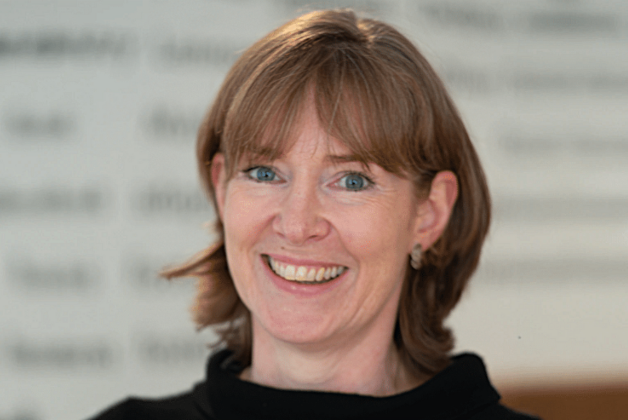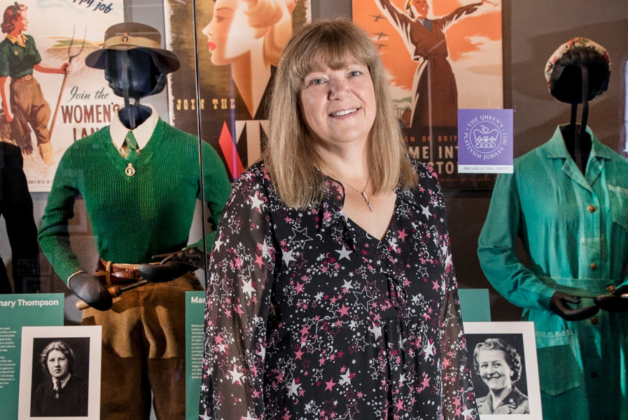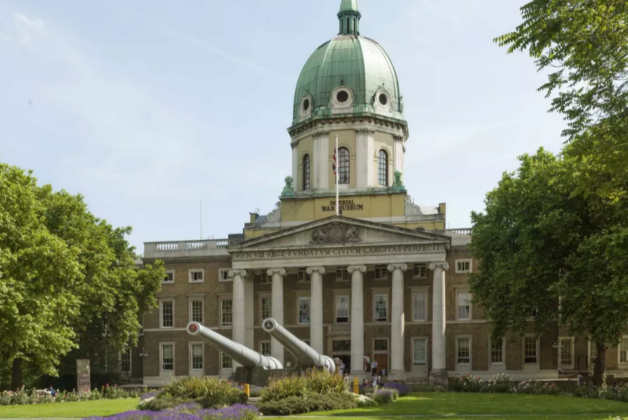Main Image: Curators installing a photograph of the Syrian conflict by documentary photographer Sergey Ponomarev for Syria: A Conflict Explored
The IWM Institute for Public Understanding of War and Conflict will explore new ways of deepening knowledge of 20th and 21st century war and conflict and stems from audience research that calls for a ‘deeper understanding and insight’
The IWM Institute has created a network of IWM Associates to assist with the Public Understanding of War and Conflict pilot that will draw on the knowledge and experience of a range of experts from the fields of arts and culture, policy, academia and the charity sector.
Activities over the 18-month pilot will combine IWM’s own expertise with insights from related sectors, the institute says, helping make sense of today’s conflicts by drawing connections between past wars and the contemporary world and will include research and data-gathering, to public programming, academic partnerships and bespoke digital content.
During the pilot, the Institute will engage the public through a number of unique partnerships and challenging themes, including the Holocaust, refugees and displacement, sexual violence as a weapon of war and the role of social media in conflict.
In 2017, and again this year, the IWM in London and then Manchester respectively held Syria: A Conflict Explored with the aim of providing visitors with a better understanding of an extremely complex, on-going conflict, which is also believed to be the first conflict widely screened on YouTube.
Gill Webber, Executive Director, IWM InstituteOur visitors tell us that while information about war and conflict is ubiquitous, people do not feel that they get the whole picture or a deep understanding from news or social media. There is a desire for a physical connection to really understand the story of the world we live in today and its historical context is also key to real insight.
The Institute will explore the themes in partnership with universities, including a project on the Holocaust with the University of Bristol; a major season on refugees and displacement with the Arts and Humanities Research Council and a project with King’s College London, exploring how social media propaganda contributes to the causes, course and consequences of today’s conflicts. A project with the London School of Economics and Political Science will look at sexual violence in conflict, a topic never-before-addressed by a UK national museum.
Alongside research projects and programming outputs, the Institute will also enable digital innovation in the form of its Making a New World, a season of exhibitions and programming exploring how the First World War has shaped the society we live in today, which will experiment with immersive digital experiences. In I was there: Room of Voices, visitors will be able to immerse themselves in first-hand accounts from IWM’s sound archive of experiences of the end of the war.
Among the IWM Associates are Dr Lina Khatib, Head of the Middle East and North Africa Programme at Chatham House; film-maker and cultural historian Patrick Vernon OBE, Jonathan Cohen, Executive Director of Conciliation Resources and Professor Rana Mitter, Professor of the History and Politics of Modern China and Director of the University China Centre at the University of Oxford. The IWM Associates will use their own unique perspectives from their respective fields to support the development of fresh and creative approaches to public engagement with war and conflict.




